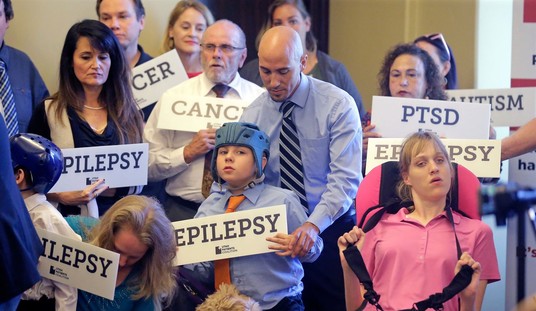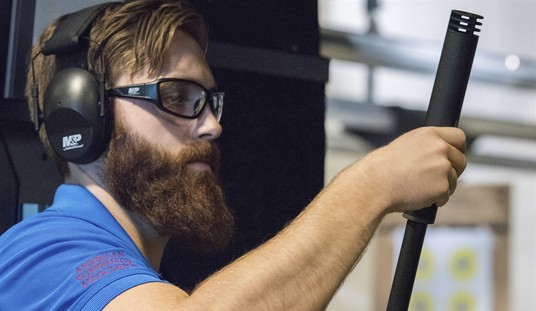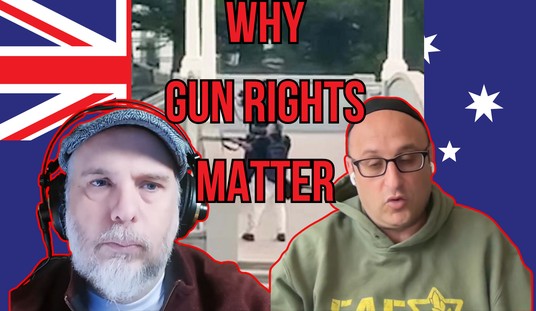Criminal defendants are presumed innocent until proven otherwise in a court of law, but as we all know, the court of public opinion operates on a very different standard. Arrests are often treated as proof of malicious or illegal behavior, as we witnessed in the case of Kyle Rittenhouse, who was labeled a murderer by many on social media, in the press, and in Democratic political circles. Facts may be important to juries, but they’re optional for a lot of us who are willing to base our views of someone’s innocence or guilt on first impressions.
But what happens when someone faces consequences for committing a crime that turned out not to be a crime at all? What recourse do they have? It’s the question posed by former elementary school teacher Roger Matthis, who’s now fighting to be reinstated to his job after being cleared of all criminal charges in the shooting of his former roommate in February of 2020.
Matthis told Channel 2′s Tyisha Fernandes that he had been trying to evict Terrill Terry for weeks before the shooting.
Terry was had been cited for disorderly conduct and violence the same month of the shooting. A judge ordered Terry to return the house keys to Matthis and granted Matthis a protective order.
A few days after that hearing, Terry kicked in the teacher’s front door. Matthis shot him and was subsequently arrested and charged with aggravated assault.
I’m having a very difficult time understanding why Matthis was ever charged with a crime, given that Matthis was in his home when Terry kicked in the front door while there was an active restraining order against him. The former teacher says that his ex-roommate “really just played the police officers who didn’t run his name and didn’t do their due diligence to find out who he was,” and if that’s the case then it’s not Matthis who should lose their job. It’s the officers who never checked out Matthis’s side of the story, as well as all those who let this case drag out for more than a year.
Matthis lost his teaching job and the state revoked his teaching license.
After nearly two years of fighting for his freedom, Matthis has finally gotten the charges against him dropped, and he’s looking ahead to the future.
“They should’ve done an investigation. I had all the proof that he wasn’t supposed to be there but they said they wanted it to play out in court. I’m glad it didn’t get that far and that justice prevailed. It just took a long time,” he told Fernandes.
Far too long, in my opinion.
Part of the problem, according to Matthis’ attorney Mike O’Hagan, was that the local court system was basically shut down when Matthis was arrested on assault charges. Grand juries weren’t operating, so the case was stuck in limbo for months.
But that is only part of the problem, because both police and prosecutors had access to all the information that should have been needed to clear Matthis of all criminal charges. They knew that the man Matthis shot had a restraining order forbidding him from going to Matthis’ home. They knew the man had been ordered to hand over his keys to the house where he used to live. They even had surveillance video that showed Terrill Terry kicking in Matthis’ front door before shots were fired. And yet with all that evidence, the District Attorney refused to drop the charges and clear Matthis’ name for nearly two years.
In a news story that aired last September, South Fulton police were quoted as saying that Matthis didn’t properly evict Terry, and that a Fulton County magistrate judge had signed a warrant for Matthis’ arrest based on “sufficient probable cause.” I would love to know what evidence was presented to the magistrate, and whether it included the order of protection that Matthis had taken out against Terry, or the fact that a judge had ordered Terry to return the keys to Matthis’ home days before he kicked in the front door. Again, I’m having a really hard time understanding why charges were brought at all given the circumstances of the case that were known to police at the time.
So what’s next for Matthis now that his name has been cleared? Hopefully a return to the classroom. According to Matthis, he has a hearing with the Georgia Professional Standards Commission next month, and he’s hopeful that he’ll be able to get his job back once his teaching license has been restored. I don’t think that will fully bring justice to Roger Matthis after all he’s gone through, but getting his old job back would at least be a good start.









